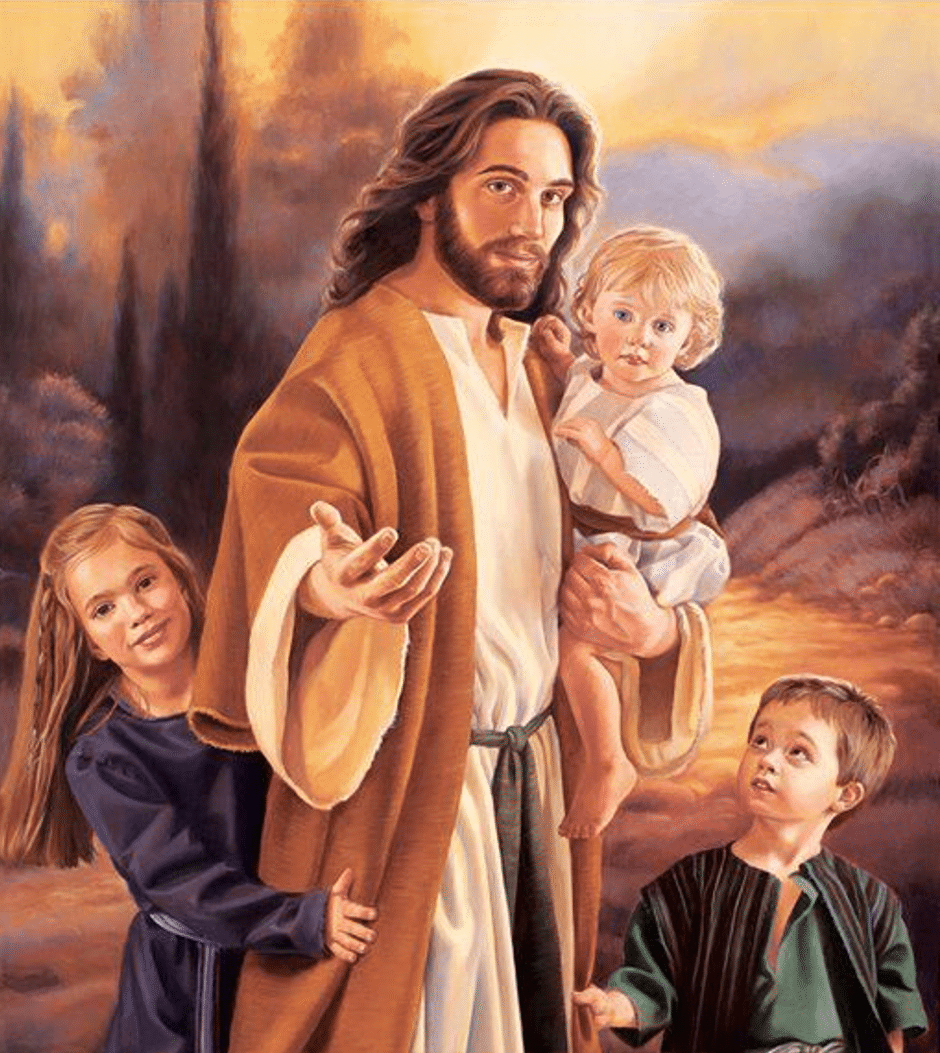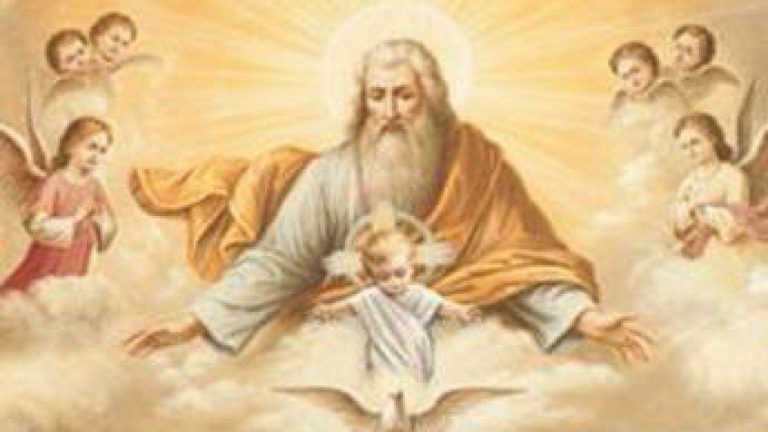The Wonderful Reflections on Children’s Day
In our stage as children we loved games a lot, especially dreaming of being big, pretending to solve problems and make decisions always in a good mood, happy and smiling. But when we reach adulthood, all that fantasy world is left behind but occasionally we are assailed by beautiful memories that we call Children’s Day Reflections. Find out more by reading below.
Reflection for Children’s Day
Below we present 5 reflections for children about the world we lived in as children and that we now make present with our memories.
what we once were
When we talk about childhood, we talk about what we once were. Many are the people who yearn for childhood as a fortunate stage in their personal history; some preserve vivid memories despite the time that has passed; others only have memories that get lost among confused reminiscences.
Others are determined not to idealize the initial years of their lives since they have not always enjoyed what they want every child to expect. For many reasons, particular, family, or social, childhood, like any other human stage, can also be a painful stage.
The truth is that, beyond the situations faced in childhood itself, this has been characterized, more than any other later phase, by the “law of constant growth”. In childhood, development reaches up to 70% of what will grow in the rest of life.
For psychology, psychiatry, educational psychology and other similar specialties, childhood is like the “additional uterine matrix” that maintains us and in which we develop in the initial years of life. It is like the moldable wax in which are engraved, like seals, the impressions that will remain in the depths of our psyche. It seems like the puzzle in which the different pieces that will build our identity and the profile of our character are articulated.
Of all the human phases, childhood is the one that most determines the entire subsequent process of life. In it we evolve both biologically, psychologically and emotionally, a large part of our later development.
In childhood we dedicate ourselves to the great task of discovering and recognizing the substance and life that surround us. We get to know ourselves permanently and begin to socialize with other people, being part of a family and the circuit of other relationships.
Certainly we are no longer children. However, we once were. When recalling childhood and evoking the child we were, we can perceive a variety of emotions: Joy, longing, gratitude or perhaps, equally, why not, other not so positive experiences.
When you connect with the child you were, the one who bears your name and your story, what image is the one that comes to us? what is the image in which you see yourself and recognize yourself?; what places do you remember?; What aromas are familiar to you? what landscapes are painted?; what voices do you hear? what stories do you remember?
paradise lost
For most adults, childhood is presented as the “lost paradise” of our own existence. We have to find him again throughout our existence. Sometimes we want to return but we have forgotten the way and we can’t find someone to guide us.
Childhood is an “allegory” of the nature of our human condition. It does not remain in our past but is shown on the horizon of our future, as a “scale” of the personal journey to which we must arrive.
As life goes on, we are leaving behind all the childish characteristics: Belief in others, simplicity, ingenuity, willingness to play and dream; inventiveness, imagination and creativity; always start something new; understand things and question, without any shame, what we do not know.
As well as being affectionate and eloquent without conditions, natural, genuine, fresh, witty, smiling, withdrawn or extroverted, charming, cheerful and many, many other good qualities that we are, unfortunately, leaving behind and losing as we grow, as if it were an erosion that consumes life, making us stern, rigid and interested, serious, cautious and distrustful.
Later on, when maturity arrives and we realize that we have to “unlearn” certain learnings that we have obtained, old age reminds us of the re-encounter with childhood. Life begins with an “early childhood” and ends with a “second childhood.”
Old age or senility is a “last childhood”: We return to the basics of life; we no longer work and we begin to enjoy; we delight in the simple things in life and simple and lasting affections; we give each other free time; we return to “play” with life as at the beginning, without worrying about the weight and burdens that have been added and accumulated along the way…
We have to remember again what it was like and how it felt, how that infant that we once were contemplated the world. Rescuing the “forgotten child” is not a sign of immaturity or of being incomplete, but of re-encountering our own nature, with the most authentic part of ourselves that we have lost or forgotten.
We return to the child we were when we lived, as in that time, feelings of helplessness, insecurity, weakness, abandonment; or equally feelings of affection, attention, indifference and containment or when we allow our imagination, daydream, fantasy to fly and we transport ourselves to those forgotten tales with heroes and princesses, sorceresses and giants, sovereigns and villains, ogres and monsters. Figures where good and evil are always debating.
Those distant kingdoms, with all their figures, are within us. They are fantasies of our deepest spiritual realities. They are inside us with other names and they cover themselves with other suits and masks; However, they show up and reappear within us, in different ways, throughout our journey.
They are our particular representations of ourselves. Tales and stories speak to us and our explorations, narrate our pilgrimage. That is why we are so identified.
The stories that they told us or those that we could read, those that others told us or those that we heard have become “keys” and “keys” by which we can continue deciphering, even today, the deep roots of our existence and the depth of our inner abyss and its symbolism.
I propose that you try to connect with the infant that you are or that you were. Recover and reconquer yourself from your childhood. Existence is the path that is outlined between one childhood and another, between the first and the second childhood.
There is still a “last childhood” that awaits us and pacifies us with the whole of life. It preserves all the illusions virgin and the deferred debts of the path return to being feasible achievements for us since everything can be made possible in a new way.
Come, get out of yourself, go outside, approach your childhood home, take off your shoes, step on the soft grass, run, feel the breeze that embraces you, put your feet in the clear water of the river, play tying the lights and the shadows, dance to the rhythm of the music that emerges from within you, listen to your song, open your arms to the sun, invite me, imagine how far we could go if we had wings!
The End of Every Tale
Some stories for children do not have, like life itself, with a “happy ending”. Certain stories are not funny or end well. Others are extremely dramatic indeed. For example, do you know what Rapunzel’s story is about?…
She was a young prey of a sorceress who had placed her in the highest part of a tower, with no entrance. When the witch wanted to climb, she asked Rapunzel to drop her extensive braid and she ascended from it, as if it were a rope, thanks to her long golden hair. One day, a prince learned about the sorceress’s secret and, in the same way, ascended to meet the prey.
When the witch found out, she cut the braid and sent the maiden to the forest, while the prince, she took away his sight with a spell. After a long time, the prince blinded and the girl lost, they found themselves in the darkness of the forest and could recognize each other.
It was thus that Rapunzel hugged the sightless prince and sobbed with joy. His tears rolled down to reach the prince’s dry, somber eyes. Tears wet her eyes, flooding them, again, with a new and warm light. Thus the prince was able to recover his sight: Often in life, the tears of some are transformed into the light of others.
Stolen Childhoods
In the world in which we exist, in times of “globalization”, a large part of the new excluded that the system produces are infants. Nowadays there is a lot of talk about the “rights of the child”; however, there are also numerous and serious violations of these rights. The “Children’s Day” is to evoke socially and fundamentally in solidarity with these children, the “new poor”.
Currently, children in our reality in a situation of constant social risk is an extremely alarming phenomenon. It is evident in some of the following critical conditions: Street children; babies left, spoiled or beaten; the sale of babies; child malnutrition; the high percentage of infant mortality; children taken advantage of by the adult world of work.
Similarly, illiteracy and early school leaving; the children introduced to the new conformations of families and bond couplings; the problem of adoption; youth delinquency; the rehabilitation and social incorporation of children who steal; trade in organs, prostitution and child pornography; children raped and victims of violence; children with HIV.
Also violent children in schools; drugs in childhood; the extreme misery in which some exist; cyber addicted children and those who are subject to advertising aimed at creating behaviors of child consumerism; children with absence of maternal and paternal, masculine and feminine roles; children emotionally raised in an abandoned way by their parents; children without restrictions; etc.
We exist in a society in which children lack privileges: What can you do to mitigate all this destructive force?; What if it was a son, a grandson or a nephew of yours who endured some of this? how would you answer?…
The Child God
Jesus in the Gospel He is shown surrounded by infants and, despite the fact that the apostles want to distance them, the Lord gives them his blessing. In addition to this, he asks us all to act like children in order to enter his Kingdom. To return to being like children is to return to being human. Take back our nature and our soul.
Our Lord made man not only adores children but also gave Himself to the laws of human development. Through the enigma of the Incarnation, God becomes an infant, is conceived by a woman, lives in a family, learns to be human. The Child God that we venerate in the cradle of the Manger at Christmas enlightens our gaze of belief in childhood.
Jesus was an infant like all the other children in his village. He grew close to the affection of Mary and the attentions of Joseph. He existed and played in a modest house supported by the efforts of daily work. The rhythm of prayer protected the seed of faith in that home.
Mary, the Mother, was likewise an infant. The Virgin Child exhibits the subtlety, the affection and the very softness of the naive innocence of all childhood. Let us place all the infants in the heart of the Child God and make a round holding hands with the Virgin. Let us not be ashamed to return to being like children. May the guardian angel, pleasant company, protect us and be company every day.
May God lull us to sleep in the compassion of his arms and in the charity of his affectionate love. May the Lord of heaven sing us a lullaby, a lullaby, that makes us live in peace. May he lull us forever his affection so that we meet in peace.
Dear God, sing me a tune like the ones my mother used to sing. Sing to me like when I was a child. Sing to me so that the darkness never touches me, so that fears do not immobilize me, so that perverse feelings do not enter my soul.
Dear God, sing to infants and sing equally to those of us who are no longer so children. We all need it, although sometimes we don’t dare to ask you for it. We are ashamed. We feel older but, in reality, we are still children.
Sing to the humble and the suffering, the elderly and the forgotten, those who are confined and those who lack bread, shelter, work, family or friends. Sing to everyone. Let us hear, deep inside us, your pleasant and inimitable voice that whispers to us. Sing to me, sing me a tune so that I can return to being the child that I am still…
Reflections of Pope Francis on Childhood
On July 19, Children’s Day is celebrated. For them we want to share in this opportunity 8 reflections of Pope Francis about the greatness of childhood.
“When we talk about children coming into the world, there is no adult sacrifice that is considered too costly or too great.” (General Audience of Pope Francis 04/08/2015)
“A society that has abandoned children and relegates the elderly has severed its roots and darkened its future. And you make the assessment about what our culture is doing about it today. Every time a child is left aside and an elderly person relegated, not only is an act of outrage carried out, but the collapse of that society is also corroborated. (Pope Francis’ speech at the plenary session of the Pontifical Council for the Family, 10/25/2013)
“It’s strange: the Lord has no problem making himself understood by children, and children have no problem understanding the Lord.” (General Audience of Pope Francis 03/18/2015)
“Children remind us of another beautiful thing; they remind us that we are eternally children. Even if one becomes an adult or an elder, even if one becomes a father, even if one attains a position of responsibility, underneath it all is the identity of a son. We are all children. And that always brings us back to the fact that existence has not been given to us, but that we have obtained it.» (General Audience of Pope Francis 03/18/2015)
“Children are in themselves an abundance for humanity and also for the Church, since they continually summon us to the condition required to enter the Kingdom of God: that of not considering ourselves self-sufficient but in need of help, love, a gift… » (General Audience of Pope Francis 03/18/2015)
“Children are not secretive: they express what they feel, they say what they observe, in a direct way. And on numerous occasions, they put parents in difficulty… They express: “I don’t like this because it’s unpleasant” in front of other people… However, infants say what they think, they don’t have a split personality, they haven’t yet learned that idea of “fold” that we adults have already learned.” (General Audience of Pope Francis 03/18/2015)
“Children additionally, in their inner simplicity, bring with them the power to give and receive affection. Affection is having a heart “of flesh” and not “of rock”, as the Bible points out (cf. Ez 36, 26). Affection is also poetry; it is “perceiving” things and events, not treating them as simple objects, only to use them because they are useful…” (General Audience of Pope Francis 03/18/2015)
“Laughing and crying, two things that in us adults, are often “blocked”, we no longer have the capacity… And on many occasions our smile becomes a paper smile, a lifeless thing, a laugh that does not it is alive, including a fake, clown smile. Children laugh and cry naturally. Always obey the heart.
And our heart is impeded and often loses that ability to laugh and cry. This is how children can teach us again to laugh and cry. We have to question ourselves: do I laugh naturally, freshly, with love? Or is our smile fake? I still cry? Or did I lose the ability to cry? Two very human things that we learn from children.” (General Audience of Pope Francis 03/18/2015)
Reflections on Modernity for Children’s Day
For children, dates such as Children’s Day and Christmas are the few spaces in which they obtain a leading role that, if analyzed well, is even harmful, since their expectations and desires as infants are restricted to the logic of mercantilism that welcomes them as subjects of consumption for trading products.
Obviously, this is not an event that occurs in a vacuum, since it is a response to discourses lodged in our society, assimilated and multiplied by the adult world that today molds in recent generations the values adjusted to a model that encourages selfishness, consumption and empty materialism.
Therefore, the commemoration of Children’s Day should be above the maelstrom that pushes families to compulsively acquire things that do not guarantee the most basic needs of childhood, but rather respond to a deformed construction of what is to give relevance to children, an alteration that is submitted to the values and ideologies inspired by our daily life and that are deeply rooted in our social order.
The right to live in a healthy environment, for example, with environments suitable for recreation and free of pollution, may be a luxury in countries where urban planning gives little relevance to green areas and sites that enable children’s leisure activities as are the games and parks.
Likewise, we do not make visible the requirements of childhood when we maintain an educational system highly oriented to results and competition above the development of integral human beings. A system that places great value on measurement and that subjects children as people to a simple number that becomes part of their social identity from their earliest years, raises questions about the values that guide us.
In this regard, an increase in psychological disorders and a significant deterioration in children’s mental health have been observed, a requirement that is also not covered, due to the limited supply of health issues for the children’s segment. There are very few psychologists and psychiatrists for children and apart from the private offer, the public health system also does not offer greater coverage.
In summary, we constitute a society that considers its children little and that has remained focused on being adultistic, always keeping the focus on the requirements of the adult world and not on those of children. Hence, numerous practices of abuse are made invisible or allowed, closely linked to our authoritarian custom, by the way.

Hello! Let me enthusiastically introduce myself as a dedicated blogger fueled by an intense passion for meticulously crafting insightful and well-researched blogs. My mission revolves around providing you, dear readers, with a veritable treasure trove of invaluable information.






